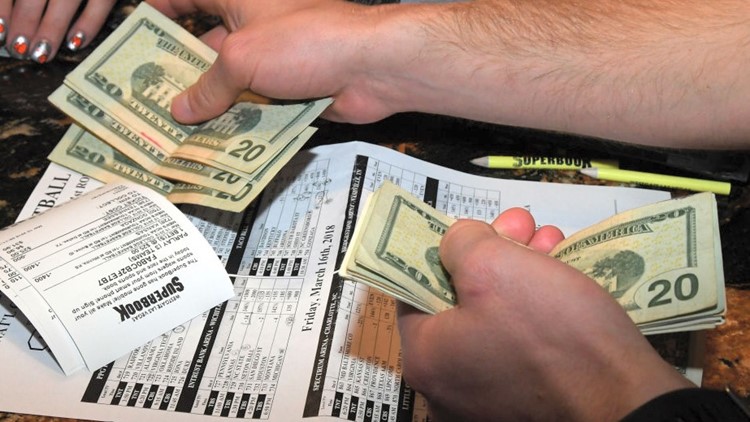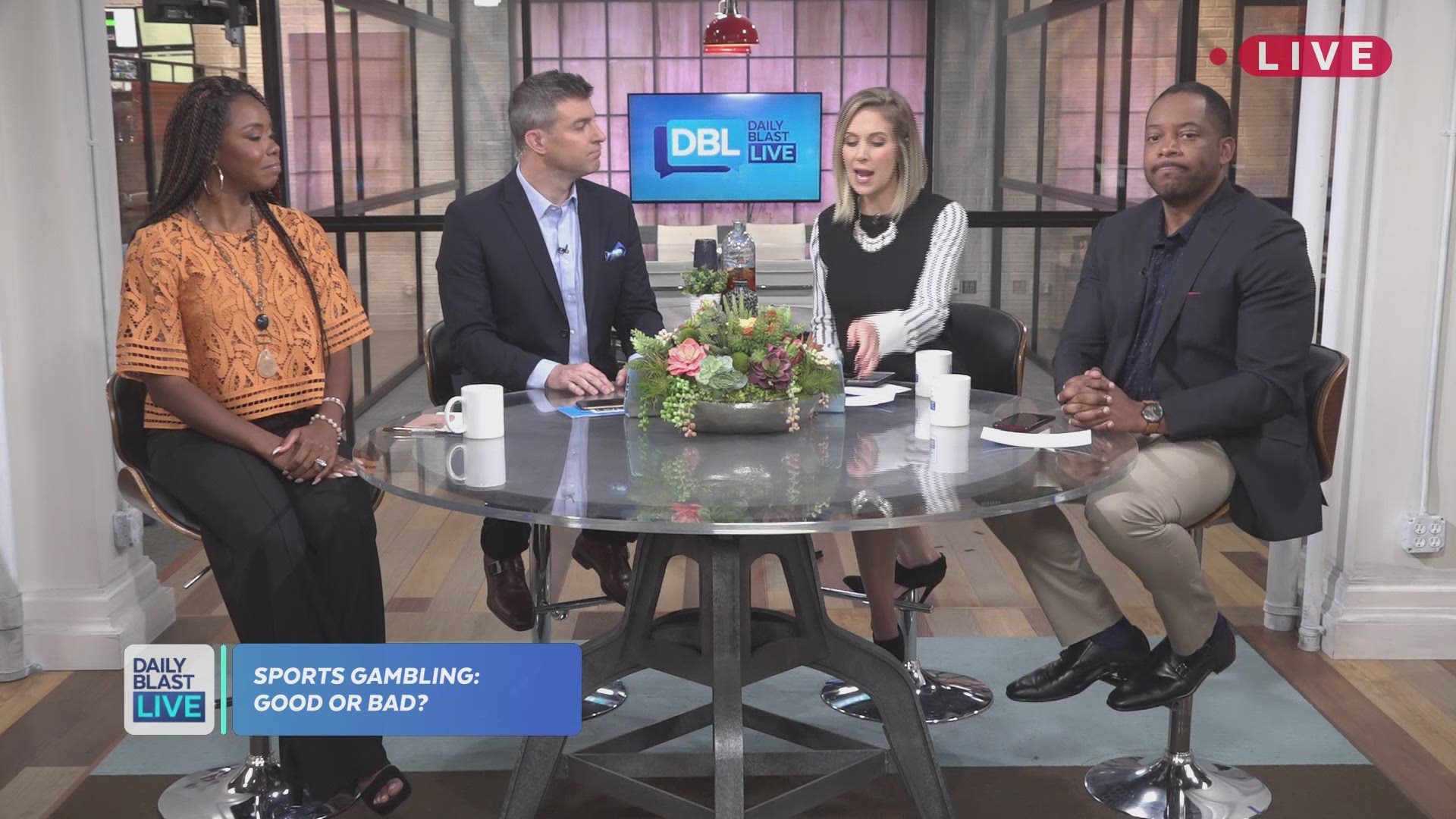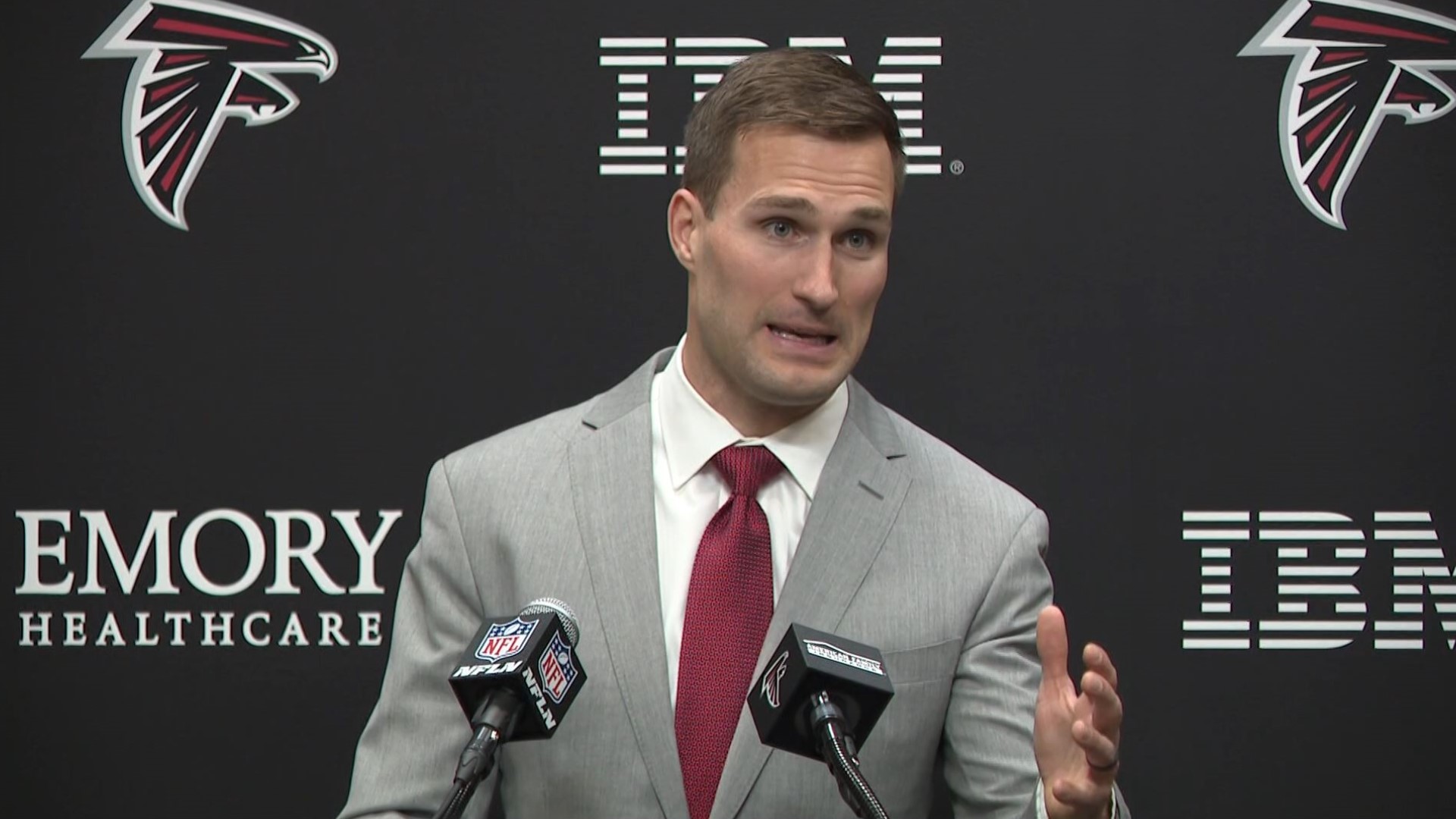ATLANTA—Sorry to disappoint here, but I don't have a definitive opinion on the U.S. Supreme Court's landmark ruling from last week, thus positioning each state to determine its own fate in the highly lucrative realm of legalized sports betting.
A part of me wanted the nation's highest court to open up the floodgates to prospective gambling houses everywhere, knowing that some states have already constructed state-of-the-art facilities to meet the expected demand of mass participation.
However, another part of me hoped the Supreme Court would kick the proverbial can down the river, as a means of delaying such a momentous decision.
The rationale behind that: Life's pretty good in this current climate of nationwide betting for daily fantasy sports and horse racing ... but only visits to Las Vegas when seeking out legalized sportsbook action involving the NFL, MLB, NBA, NHL and PGA, among others.
Which brings us to today's piece with 11Alive Sports: The following four questions should help work through my ambivalence on such a hot-button issue; and after the last line has been published, maybe I'll find some inner peace with the crazy betting future that lies ahead.
QUESTION #1: Does the 'You already play the lottery' argument hold much water, in relation to sports betting?
Not really.
What typically motivates a person to buy a Mega Millions or Powerball ticket every now and then? Putting this to a fake vote, the vast majority of respondents would probably cite "size of jackpot" as the No. 1 reason for participation; and that makes perfect sense.
Yes, some people buy lottery tickets on a whim, thinking their special set of magic numbers will lead to an unimaginable fortune.
However, for the most part, Mega Millions or Powerball tickets get purchased, based on the level of billboard or media-driven hysteria for an ever-expanding jackpot size.
Heck, I'm still reeling from the sight of a Powerball billboard hitting the $999,999,999 mark from a few years ago.
As in one dollar from a billion ... with a B!
It's different for sports, though: Say, you're enjoying an NFL tailgate with friends in North Carolina, and a buddy mentions how the Falcons are only 3 1/2-point road underdogs against the Panthers. In previous years, short of having a willing bookie on the down low, you couldn't do anything about this supposedly juicy Vegas betting line ... even if you were supremely confident that Atlanta would defeat Carolina straight up (thus covering the spread).
Well, assuming southern states like North Carolina, South Carolina, Tennessee, Alabama, Florida, Mississippi and Georgia, etc. approve legalized gambling in due time, NFL fans living in the Sun Belt will be granted the same access to betting-line action, compared to those living out a hedonistic weekend bender in Nevada.
And that's my attitude for just about everything in life: If something benefits the vast majority of responsible adults ... I'm all for it.
Or, to borrow a famous Star Trek saying from Dr. Spock: "Logic clearly dictates that the needs of the many outweigh the needs of the few."
QUESTION #2: Are you worried about legalized sports gambling leading to more lives being hindered by gambling addiction?
As long as we have flawed human beings on this earth (soda obsession will undoubtedly contribute to my demise someday), there will always be troubles with addiction—whether it involves gambling, drugs, alcohol, painkillers, sugar intake or even s*x.
And as part of a naturally forgiving society, I have great empathy for people torn up by certain afflictions.
But once again, I hardly think legalized sports gambling in various states (Utah ... really?) will result in the world ending anytime soon; and I'm not worried about professional athletes, coaches, executives, referees or umpires getting caught in compromising situations, where only fixing a sporting event would rectify the stickiness.
Has that been a public plague in the past? Sure. But given today's prodigious salaries for pro athletes and supporting personnel, there's likely little motivation to destroy a potentially thriving athletic career ... over the stakes a single bet.
QUESTION #3: But what about college athletes and legalized sports gambling?
Here's where things get complicated ... and perhaps a little hypocritical: Like most people in the sports biz, I'm fascinated with various betting lines for a typical college football weekend.
It makes for great entertainment when reading online articles on Saturday mornings, or when watching College Gameday's Lee Corso declare, "(Game X) will be closer than the experts think"—with full knowledge of who these 'experts' may be.
It makes for good conversations with friends, as well.
As in, hypothetically speaking for this September:
Can you believe Miami's a 5-point underdog to LSU in the season opener?
Or, Should Vegas have Alabama as a bigger favorite over Louisville than 24 points?
It's harmless fun for me, since I long ago took the personal oath never to mix business (sports journalist) with pleasure (betting on college games), outside of filling out the occasional NCAA Tournament bracket.
On the flip side, the vast majority of the populace doesn't have to worry about journalistic ethics or possible conflicts of interest when commenting on betting lines involving college games. So, if it's an acceptable premise in Las Vegas, then other states should have the same freedom to tap into similar revenue streams with sports gambling.
Now for the hypocritical part: In college, one of my friend's fraternity brothers nearly lost his shirt gambling on NFL games (private bookie) ... and only a victorious, last-second field goal for one double-down bet mercifully brought him back to even.
This fraternity was also home to a few active student-athletes, who were undoubtedly aware of the guy's money troubles on the gambling end. Reminder: This was in the mid-1990s, long before the notion of legalized national gambling would become a gleam in some New Jersey politician's eye.
In 2018, with nearly everyone having access to smartphones and gambling Web sites, it's easy to garner up-close access to student-athletes who don't get paid for their athletic endeavors ... but could still possess heavy influence on the results of certain events.
It's a scary proposition for anyone who places a high value on the integrity of college sports.
QUESTION #4: How do you think legalized sports gambling will affect fantasy football?
I did some work for Fanball.com in Minneapolis last year; and let me say with full confidence: The FB executives are not fretting over each state having the opportunity to promote legalized sports gambling.
In fact, the Fanball guys probably celebrated with tequila shots and Red Cow burgers when the Supreme Court's booming decision became public.
Here's why: The vast majority of fantasy football leagues don't live and die on the size of a winning jackpot. Sure, there are some monster payouts out there, involving obscene amounts of cash. But for the most part, the average league champion probably collects between $600 and $800 in a given season—good money for buying more Christmas/holiday gifts ... but not enough to tell your respective boss to take a hike.
Remember the old NFL.com commercial featuring Peyton Manning, where he held up a tiny trophy from fantasy football and deadpanned, 'This is what I play for"? Intentional comedy aside, the Manning ad wasn't that far off from reality.
For my 'Homeboys' fantasy league (14 teams), comprised of guys with connections to my hometown in Michigan, each owner contributes a modest league fee of $50 ... with the season champion taking all the money (second place doesn't have to pay the fee).
It breaks down to $650 for the winner, a nice payout, but hardly life-changing money.
Why am I bringing this up? Well, two of our league owners conservatively make more than $200,000 a year (spoiler alert: I'm not in that tax bracket); and yet, they approach every league transaction with the same ferocity of a major stock trade on Wall Street.
All for a measly $650 to the winner ... and absolute bupkes for the runner-up and also-rans.
Bottom line: Everyone likes money, that's why they call it 'MONEY' (hat tip to Danny DeVito's character in Other People's Money). But when embroiled in a hotly contested fantasy league with lifelong friends ... the trophy that costs $5 at Cheap-O Mart perhaps has more intrinsic value than a modest PayPal payout from the league commissioner.
As for fantasy football and how it pertains to companies like Draft Kings, FanDuel, Fanball, etc., in addition to filling out fantasy lineups for sport, customers could conceivably place team-related or prop bets on just about every major sport, while they're breathlessly waiting for NFL Red Zone to start at 12:59 p.m. EST on Sundays. For me, that's just another slice of heaven to enjoy ... while lounging on the couch.




